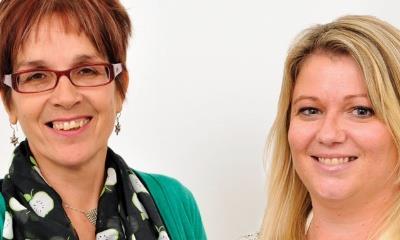St Levan Surgery in Plymouth won the HSJ Award for acute and primary care innovation. Hilary Neve and Liz Brimacombe explain the Patient Access phone system behind the practice’s transformation

“So doctors, we’d like you to improve patient access and the patient experience, enhance the quality of care and patient safety, make your service greener and, while you are at it, reduce the pressure on urgent care services…”
'Tweaking our system wasn’t the answer − we know, we tried it. So we went for a radical overhaul'
Very laudable goals, but as a small Plymouth general practice, based in an area of significant deprivation and already struggling with resource constraints, the rising demand for consultations (up from 3.9 per patient a year in 1995 to 5.5 in 2008) and increasing levels of chronic and complex health problems, we could perhaps be forgiven for throwing up our hands in horror at the Department of Health’s multiple policy directives.
Yet our solution to patient access has helped us manage our demand, enabled us to address all the policies above and won us a 2012 HSJ Award to boot.
2007: struggling
It is a cold damp morning and there’s a queue outside the surgery of patients desperate to get our few remaining same-day appointments. As the doors open at 8.30am the phones start ringing and within moments the available appointments have all gone.
Receptionists attempt to prioritise with the indefinable “is it urgent for today?” question, offer patients an appointment in two weeks, suggest they ring back another day or offer a phone call with a doctor.
The doctors are also frustrated. They know some patients needed longer or shorter appointments, would like to be seen at a more convenient time or just need simple phone advice.
Appointments are wasted when the necessary investigations or information are not to hand. There’s a long list of patients to phone − some of these need appointments but there is nowhere to fit them in. We are all struggling to cope.
2008: crunch time
Tweaking our system was not the answer − we know, we tried it. So we went for a radical overhaul, introducing a telephone consultation system now called Patient Access.
'Like many Patient Access practices, we initially found it difficult to convince our local health organisation'
Patients phone the surgery as usual and receptionists record all requests for doctor contact on the GPs’ screens. The GP phones the patient back, usually within an hour, to agree a plan. This may be an appointment at a time convenient to the patient (70 per cent of patients choose to be seen on the day), phone advice, investigations, appointments with other practice staff or directions to other services. Follow-ups are also often done by phone.
2012: so much better
We are all happier. Patients no longer need to queue for appointments and patient satisfaction has greatly improved, particularly about convenience of appointments. Fifty per cent of patients are managed by a simple phone call and the other half are able to access our service.
Patients make fewer visits to the surgery, resulting in carbon savings and fewer complaints about parking. Despite the hike in phone costs, not one of our five GPs would return to the old system.
We are now members of Patient Access, a social enterprise network of practices using this system. Patient Access chief executive Harry Longman has found surgeries using the system have, on average, 20 per cent less than expected attendance at A&E, which research suggests is linked to prompt access to a GP by phone. His projection is that if all UK practices used this approach it could save the NHS £200m a year.
What we have learnt
The team is key. We have a fantastic team. We believe it is our commitment to learning, our openness to new ideas and determination to improve that have enabled us to change and innovate, along with our shared belief that great general practice is not just about caring for the individual patient, but also about effectively meeting the needs of the whole practice population.
Plan and monitor. We held away days and cleared all appointments so we could start day one with empty surgeries. We continue to monitor patient demand, the service we deliver and patient feedback. We meet regularly to review this data and make adjustments as needed.
Don’t be put off. Most of our patients liked the system from the start but some found the transition hard. Despite newsletters and notices, some patients just didn’t understand the new approach. Spending time explaining the changes and rationale was nearly always met with, “Oh, I get it now, that’s great!”
Targets, designed to encourage improvement, can stifle innovation. Our practice was financially penalised by inflexible national access targets that weren’t appropriate for a phone consultation system such as ours. This was very demoralising.
Spreading the word can be hard. Like many Patient Access practices, we initially found it difficult to convince our local health organisation of the benefits of our system. For them and many other practices, the shift away from traditional face-to-face consultations seemed perhaps a step too far.
The award
There is much the NHS could do to facilitate and promote innovation. In the meantime, the HSJ Award for acute and primary care innovation, given to us on behalf of all Patient Access practices, has provided much needed recognition and a massive boost to morale. By raising our profile locally and nationally we are better able to share the Patient Access approach more widely.
For us, we no longer feel we are pushing water uphill.
Find out more
Hilary Neve is a GP and Liz Brimacombe is managing partner at St Levan Surgery, Plymouth


























1 Readers' comment